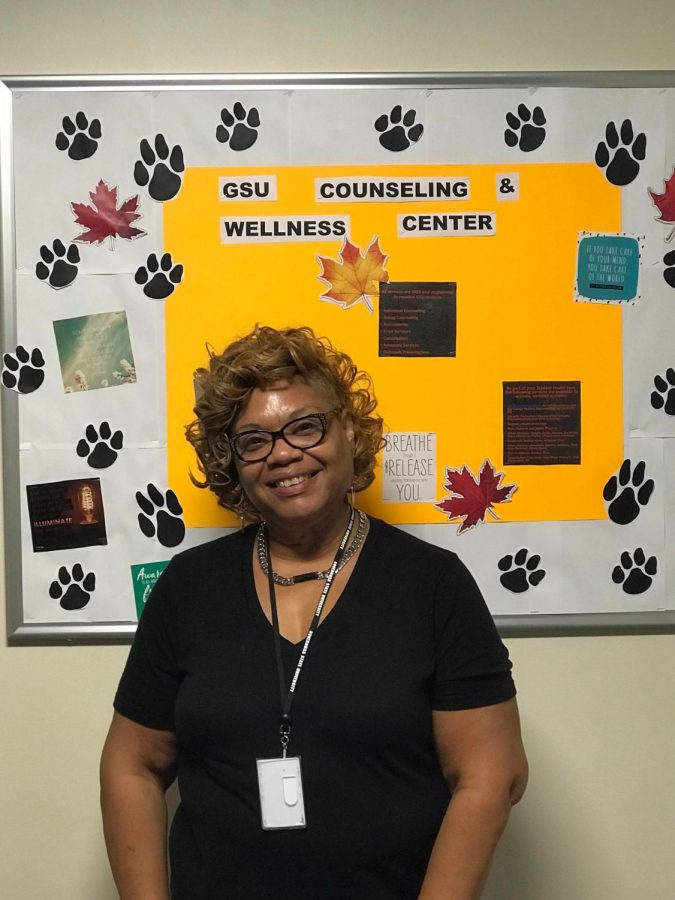Counseling Center ready to help GSU students cope with increasing stress
GSU social worker Angela Johnson
Has the return to in-person learning brought added stress to your already challenging sphere of college life? If so, GSU is ready with help.
The Phoenix met with Angela Johnson, the social worker for the university’s Counseling and Wellness Center, to identify possible warning signs and to learn what services are available to the students.
Common emotions may be raising concerns for some students; Ms. Johnson encourages all to observe how one might be feeling, such as:
- Difficulty in focusing
- Difficulty in meeting assignments
- Difficulty participating in classes
- Experiencing anxiety/stress just being in school
Encountering any of these symptoms – in ourselves or in others – can be a signal to seek help. Johnson encourages all students to be aware of and utilize the sources found on the Counseling and Wellness Center’s site. All interaction is completely confidential, and the site makes it easier to schedule appointments, making help only a click away.
Johnson said that COVID has added more stress to an already challenging college environment.
“It is a new normal for all of us,” she said. “We can conduct activities, whether via Zoom or on campus … GSU is prepared to work with students individually in creating an ‘itinerary’ to help strategize how to use their time management more efficiently and successfully throughout the term.”
In addition, The Counseling and Wellness Center site highlights all the services available to help students deal with any issues bothering them.
The Counselling and Wellness Center provides a clinical counseling session, as well. The sessions are led by two clinical counselors: Director Dr. Freddy Tung and assistant director Dr. Kim Ford. Two practicum students also are on staff.
Other forms of available assistance cover such issues as housing, food, clothing, utilities, and medical prescription fulfillment.
Johnson encourages fellow faculty and staff to become GSU4U ambassadors. Having faculty and staff engage in the training makes them better able to encourage a student to seek help if needed.
She said it is important to counter any stigma attached to mental health issues and to encourage students to discuss their mental health.
“The talk of mental health has been started and will continue,” Johnson said. “We have to normalize anxiety, stress, depression; it’s part of life. It doesn’t mean there is something wrong with an individual; our workload, our lives, can cause stress and anxiety.
“Mental health is health, just like our physical health. If our mental health isn’t stable, it causes many more problems, so addressing it and focusing our priorities on helping students feel empowered while achieving academic success. Having our students feel heard and having the conversation alone helps provide the right tools at the start.”
GSU’s part in helping students better recognize these emotions is continuing the topic of conversation. Presentations on campus and frequent email reminders of the resources available are designed to make sure students are aware of such issues.

